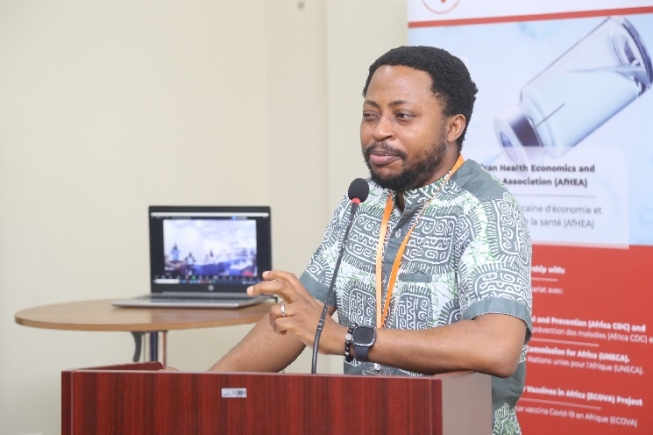A four-day international workshop aimed at generating critical evidence to inform vaccine production, and its equitable distribution in Africa has ended in Accra.
Dubbed “Equitable access to COVID-19 Vaccines in Africa (ECOVA)”, the workshop brought together experts and stakeholders to address the disparities in vaccine access across the continent.
Representatives of participating countries, including Ghana, Nigeria, Ethiopia, Zimbabwe, Kenya, DR Congo, Botswana, Mozambique and Burkina Faso, discussed strategies to improve vaccine distribution, gender mainstreaming, and public awareness, with a focus on reaching marginalised and hard-to-reach populations.
The African Health Economics and Policy Association (AfHEA) organised the workshop in collaboration with the United Nations Economic Commission for Africa (UNECA), and Africa Centres for Disease Control and Prevention (Africa CDC).
The workshop is part of a three-year collaborative ECOVA project being financed by the International Development and Research Centre (IDRC).
Vital evidence
At the workshop, the Executive Director of AfHEA, Professor John Ataguba, stated that the project's goal was to gather vital evidence to shape Africa's strategy for COVID-19 vaccine production, distribution, delivery and uptake, as well as future healthcare initiatives.
He said the ECOVA project was also aimed at addressing a significant knowledge gap by investigating how global power dynamics had worsened vaccine production and distribution disparities in Africa.
“And so, the project seeks to evaluate the fact that COVID-19 vaccines were available yet Africans could not secure them on time. It is also to assess the reason why there were inequalities among the rich and the poor, men and women, and urban and rural areas in accessing the vaccines for African countries.
“So, the idea is to find solutions on how best to improve distribution during future outbreaks of diseases, which require vaccines or medicines,” he said. That, he said, underscored the importance of thoroughly executing the ECOVA project, ensuring its objectives were fully met, and incorporating a gender perspective into all aspects of the project.
He said the workshop was the first in-person meeting for the participants; but before that, meetings were held virtually for the past two years since the project started.
Three outcomes
Prof. Ataguba stated that the workshop hinged on three main outcomes, which included how to mainstream gender into their operations. That, he said, was because it had been found that there was a huge gender disparity in terms of access to COVID-19 vaccines.
“We also need to capacitate participants with regards to what they need to do to communicate with different audiences, including policymakers, implementers and the general public.
“It is also to build a strong network that can enable them to share knowledge on issues relating to vaccine production, distribution and delivery,” he said. He said it was to enable researchers participating in the project to contribute their scientific knowledge to the debate on access to vaccines and its related issues.
“So, we want to share knowledge on what has been learnt using COVID-19 as a case study across the continent in terms of similarities, differences and how countries can learn from each other,” he added.

